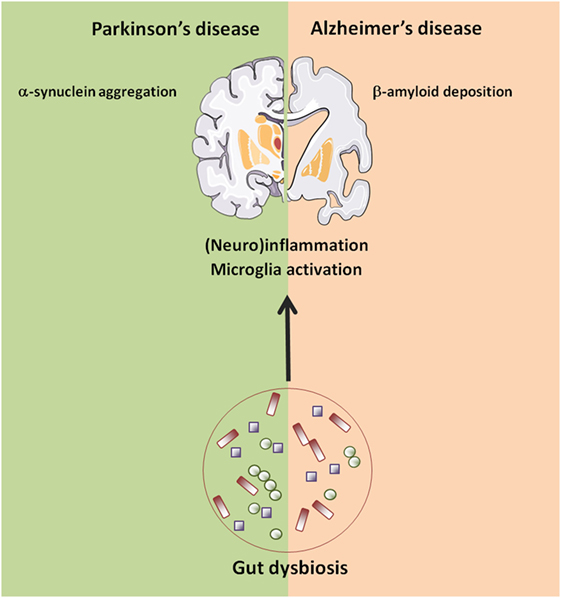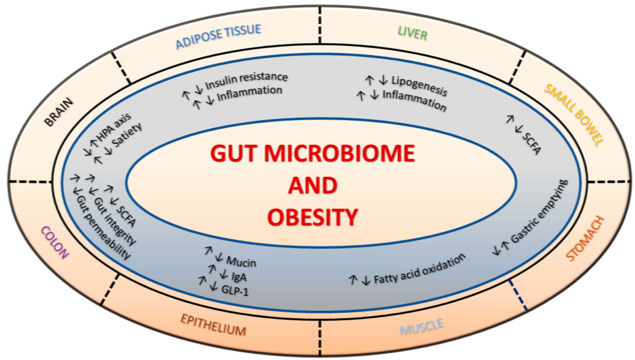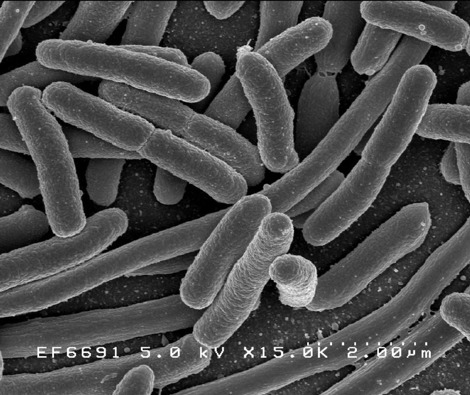Changes in our microbiota have recently been linked to the onset of neurodegenerative, autoimmune and cardiovascular diseases.
Microbiota is the community of bacteria living as a host in our digestive tracts. Having adequate gut flora is key to ensuring the proper functioning of the digestive system, as well as other body systems. In a comprehensive Age Management programme, pre / probiotics play an important role in achieving a healthier flora that allows us to age better, facilitate the loss of visceral fat and reduce the onset of diseases.
Dr. Iván Moreno – Neolife Medical Team
We are beginning to understand the significant influence that gut microbiota has on our metabolism: on our weight, cholesterol… and even on our personality!
Recent scientific advances are leading us to better understand the significant role that gut flora plays in the maintenance of our overall health and in aging in particular. Cultivating good flora requires appropriate nutrition and, depending on the needs and condition of each individual, effective supplements.
For many years we have underestimated the role that our intestine, and our intestinal flora, has on our health.
Microbiota is the community of bacteria living as a host in our digestive tracts. There are thousands of different bacterial species, with some weighing up to 2 kg. A third of our flora is rather similar from one person to the next, however, the other two thirds are specific to each individual, almost like our fingerprints. The truth is that there are about 150 times more genomes in our body from these bacteria than from our very own cells.
It would appear that the significance of this complex ecosystem and its relationship with our health is one of the most important issues that medicine has overlooked until very recently. Only now are we beginning to understand just how important the role of our gut bacteria is on our metabolism… from influencing our weight, to the density of cholesterol deposits in our artery walls, and even in determining our personality.
70% of the neurons found outside of the brain are in the intestine, and their proper functioning is also influenced by our gut bacteria through the vagus nerve in a kind of brain-intestinal system. It has been proven that neural development, behavior, our stress response and even the onset of neurodegenerative diseases such as Alzheimer’s and Parkinson’s are related to the state of our microbiota.

Some of the functions of our gut flora are:
- Helping the body to digest certain foods.
- Helping the body to produce certain vitamins (B and K).
- Helping to fight against infections from other pathogenic bacteria.
- Maintaining the integrity of the intestinal mucosal barrier, preventing toxins and other germs from penetrating the intestinal wall membrane and preventing an immune reaction or from the liver overloading, helping to detox the body.
- Having an important role in the immune response and regulation in the intestine.
Adequate gut flora is key to ensuring the proper functioning of the digestive system, as well as other body systems. In fact, the importance of the functions it carries out is such that scientists and physicians are increasingly considering it as an additional organ of the body. Which is to say an acquired organ through the birth channel and through breastfeeding, since babies are born without microbiota, therefore representing the first step towards an inoculation of germs that will evolve as we grow.
It has also been discovered that the composition of our flora can be altered through changes in diet, with a less healthy diet being linked to imbalances in the composition of our gut flora in favor of less beneficial species, resulting in inflammation and the malabsorption of essential nutrients. Likewise, bad intestinal flora also flavors the onset of obesity and hinders efforts to lose weight. There are studies that show how pre / probiotic supplements help in losing weight and decrease visceral fat.

Needless to say, such a central organ – interconnected with different systems, the absorption of nutrients, immune response and the inflammation of the organism – is related to the way we age. Microbiota can influence the state of our skin, our immune system, cognitive functioning, and bone mineral density among others, which highlight the more or less early onset of frailty and deterioration in our body.
In this way, changes in our microbiota have been linked to the onset of neurodegenerative diseases, autoimmune diseases and cardiovascular diseases.
Once the significance of our microbiota is fully understood, it is easy to see the devastating effect that taking antibiotics has on the health of our microbiota. The loss of healthy bacterial species, the impoverishment of the intestinal ecosystem and the ease with which pathogenic species (intestinal dysbiosis) or parasites can then grow, is the price we must pay for taking antibiotics. Antibiotics are necessary on many occasions, and are one of the major turning points of modern medicine; however, we must avoid taking them unless absolutely necessary.
What are prebiotics?
Prebiotics are foods that promote the growth of healthy intestinal bacteria. They are like the substrate on which our intestinal ecosystem has to flourish.
This typically involves foods rich in insoluble fiber. These are naturally present in vegetables and fruits such as garlic, onions, leeks, asparagus, artichokes, tomatoes, bananas, plums and apples. Similarly, we can find them in grains and whole grains, as well as almonds. For this reason, fruit, vegetables and cereals must form part of a healthy diet, although this must be achieved in a balanced way, since an excess can also cause abdominal discomfort and swelling.
What are probiotics?
Probiotics are living microorganisms that, when consumed in sufficient quantity, promote a healthy microbiota and can help to rebalance it when it has been affected by a poor quality diet or other factors such as stress.
They can be found in fermented products like yogurt, cheese, sauerkraut, fermented tea, kefir, etc. It is important to take in a wide variety of healthy bacterial species (the more diversity the better) in good quantities, and make sure that these are living (sometimes food processing can kill them off). It is actually quite difficult to take in the right amount of these foods – in fact, we rarely do so in practice – therefore, to ensure these conditions are met (quantity, quality, and keeping the bacteria alive), gut flora supplements have been developed in recent years which ideally ought to then combine with the substrate in order to grow, therefore: a mixture of pre- and probiotics.
Should I take pre / pro biotics?
Although the ideal would be to have a varied and balanced diet, rich in micronutrients and prebiotic substances (fruit, vegetables, etc.) the fact of the matter is that this is not usually the case, either because food quality is not quite the same as in the past (especially in micronutrients), or because our eating habits leave lots of room for improvement. If, when we stop to think about it, we believe the quality of our diet could be improved, then our gut flora could definitely benefit from taking supplements.
In a comprehensive Age Management programme, pre / probiotics play an important role in achieving a healthier flora that allows us to age better, facilitate the loss of visceral fat and reduce the onset of diseases.
Similarly, after taking antibiotics it is important to promote a healthy rebalancing of our microbiota and avoid any colonization from less healthy bacteria.
Sometimes, our gut flora has already changed and we have symptoms of intestinal dysbiosis like flatulence, white tongue, constipation, skin irritations, allergic reactions, fatigue, and joint pains etc. In such cases, it is recommended to have a doctor who specializes in this field carry out an assessment, and if needed, conduct a study to asses any dysbiosis and outline a treatment.

It is always recommended that supplements are of a high quality and that we ensure there is a large number of microorganisms of various species of bacteria (as these work better than single bacteria supplements).
Just as important as choosing a good pre / probiotic, is taking it under the correct guidelines and for the proper duration, which will depend on each case in particular.
At Neolife we trust in the advanced prescription of supplements, with personalized doses for each case in particular, with the correct strength to be truly effective and achieve the desired results, monitoring the effects on the body in each patient individually.
We are discovering that the state of our microbiota is increasingly relevant on our current state of health and on the way we will age over the coming years. Are you ready to take care of your flora?
BIBLIOGRAPHY
(1) John G, Wang L, Nanavati J, Twose C, Singh R, Mullin G. Dietary Alteration of the Gut Microbiome and Its Impact on Weight and Fat Mass: A Systematic Review and Meta-Analysis. Genes 2018 Mar;9(3):167–19.
(2) Singh RK, Chang H-W, Yan D, Lee KM, Ucmak D, Wong K, et al. Influence of diet on the gut microbiome and implications for human health. J Transl Med. 4 ed. 2017 Apr 8;15(1):73.
(3) Calvani R, Picca A, Monaco Lo MR, Landi F, Bernabei R, Marzetti E. Of Microbes and Minds: A Narrative Review on the Second Brain Aging. Front Med. 2018 Mar 2;5:321–11. Image in open Access (PubMed Central) – https://www.ncbi.nlm.nih.gov/pmc/articles/PMC5840854/figure/F2/
(4) Kasselman LJ, Vernice NA, DeLeon J, Reiss AB. The gut microbiome and elevated cardiovascular risk in obesity and autoimmunity. Atherosclerosis. Elsevier Ltd; 2018 Apr 1;271:203–13.
(5) Candela M, Biagi E, Brigidi P, O’Toole PW, De Vos WM. Maintenance of a healthy trajectory of the intestinal microbiome during aging: A dietary approach. Mechanisms of Ageing and Development. Elsevier Ireland Ltd; 2013 Dec 30;136-137:1–6.
(6) Kundu P, Blacher E, Elinav E, Pettersson S. Our Gut Microbiome: The Evolving Inner Self. Cell. Elsevier Inc; 2017 Dec 14;171(7):1481–93.
(7) Open access image, courtesy of Rocky Mountain Laboratories, NIAID, NIH. https://commons.wikimedia.org/wiki/File:EscherichiaColi_NIAID.jpg#/media/File:EscherichiaColi_NIAID.jpg
